The Minister of Culture's 2025 presentation on the implementation of the state's long-term development strategy "Estonia 2035" (including the implementation of "The Fundamentals of Estonian Sports Policy until 2030")
Session: 15th Riigikogu, 5th session, plenary sitting
Date: 2025-04-22 13:03
Participating Politicians:
Total Speeches: 109
Membership: 15
Agenda Duration: 2h 25m
AI Summaries: 109/109 Speeches (100.0%)
Analysis: Structured Analysis
Politicians Speaking Time
Politicians
Analysis
Summary
The Minister of Culture, Heidy Purga, presented a report to the Riigikogu regarding the implementation of the state’s long-term development strategy "Estonia 2035," focusing on the Ministry of Culture's area of responsibility, particularly culture and sport. The Minister emphasized the central role of culture as a driver of national identity and economic development, highlighting the high rate of cultural participation among Estonians (79% of residents in 2023) and investments in cultural facilities and the film sector. Regarding sports policy, the discussion covered the support of the Team Estonia program, the positive economic impact of hosting international sporting events, and concern over the low levels of physical activity among children and young people. The Minister also highlighted the success of developing the creative industries and the plan to digitize cultural heritage.
During a round of questions and discussions, issues were raised concerning the low salaries of cultural workers and coaches, regional inequalities in access to cultural life (especially in rural areas), the impact of artificial intelligence on culture and copyrights, and questions regarding the financing of nationally important cultural objects (such as the annex to the Estonia Theatre) and sports infrastructure. The Minister confirmed that salary increases are a priority but could not provide specific commitments due to the budget situation. The fragmented nature of language policy was also discussed, along with the need to find new models for financing the sports and cultural sectors, particularly through the involvement of the private sector.
Decisions Made 1
The Riigikogu extended the session at the proposal of the Estonian Reform Party faction until the agenda was exhausted, but no longer than 2:00 PM.
Most Active Speaker
Vadim Belobrovtsev (Center Party faction, left) was active both in asking questions and in negotiations, sharply criticizing the low salaries of cultural workers and trainers, the lack of funding for sports facilities, and the unambitious goals of the Ministry of Culture regarding participation in cultural life.
Aseesimees Toomas Kivimägi
AI Summary
Toomas Kivimägi introduces agenda item No. 1 — the Minister of Culture Heidy Purga's 2025 presentation on the implementation of the state's long-term development strategy "Estonia 2035" (including the implementation of "Foundations of Estonian sports policy until 2030"), noting that the presentation will last up to 30 minutes, each member of the Riigikogu may submit one question, and negotiations are open to parliamentary factions.
Kultuuriminister Heidy Purga
AI Summary
The main aim of the speeches is to show how to strengthen Estonia's society, economy and international recognition through culture, sport and the creative industries, while promoting integration and support for Ukraine's culture and heritage.
Aseesimees Toomas Kivimägi
AI Summary
The vice-chair thanks the audience, announces that there is a whole series of questions ahead, and Anti Allas begins.

Anti Allas
Profiling Fraktsiooni mittekuuluvad Riigikogu liikmedAI Summary
Anti Allas pointed out that the cultural life of rural areas is sustainable only if the state and local authorities can provide adequate resources and specialists, because there are no music and folk-dance teachers, and therefore there are no choirs or folk-dance groups.
Kultuuriminister Heidy Purga
AI Summary
The state aims to be present in all regions, including Ida-Viru County, southeastern Estonia, and the islands, and to continue offering the current level of cultural support to both large and small cultural organizations, so that communities and traditions are preserved even under budgetary pressures.
Aseesimees Toomas Kivimägi
AI Summary
The vice-chairman asks Urmas Kruuse to take the floor.

Urmas Kruuse
Profiling Eesti Reformierakonna fraktsioonAI Summary
Urmas Kruuse thanks the director and the minister and emphasizes that the increase in lending fees paid to literature authors is commendable and could be expanded further, because it increases the authors' sense of security. He also asks for statistics on library loans regarding trends in the number of loans and discusses Team Estonia's activities, so that after high school young talented athletes do not fall out of the system and what could be done to ensure that their potential does not remain untapped.
Kultuuriminister Heidy Purga
AI Summary
Culture Minister Heidy Purga said that digital lending is currently a critically important development direction for libraries, and its expansion should be promoted in cooperation with publishers, with political guidance, and in collaboration with Team Estonia and the Estonian Olympic Committee, so that digital ordering and lending options would be more broadly accessible.
Aseesimees Toomas Kivimägi
AI Summary
Deputy Chairman Toomas Kivimägi invites Lauri Läänemetsa onto the stage.
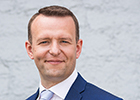
Lauri Läänemets
Profiling Sotsiaaldemokraatliku Erakonna fraktsioonAI Summary
Lauri Läänemets emphasizes that culture must not be put on hold, and asks whether a right-wing government can promise in autumn that cultural workers will receive a pay raise next year, despite budget cuts and the burden of repaying the national defense loan.
Kultuuriminister Heidy Purga
AI Summary
Culture Minister Heidy Purga said that raising the salaries of culture workers is the focus in budget negotiations, but at the moment she did not provide concrete numbers and emphasized that the issue is being treated as a whole and that additional funds from within the culture sector cannot be found.
Aseesimees Toomas Kivimägi
AI Summary
The vice-chairman Toomas Kivimägi invited Kristina Šmigun-Vähi to speak.

Kristina Šmigun-Vähi
Profiling Eesti Reformierakonna fraktsioonAI Summary
Kristina Šmigun-Vähi asked the sports policy official how young athletes who have potential and an inner drive to reach elite sport could receive the necessary development support to balance education, training, and social security.
Kultuuriminister Heidy Purga
AI Summary
Estonian Culture Minister Heidy Purga described a large support network for young athletes, in which the state funds the Audentese Sports Gymnasium at 2.4 million euros per year. Through Team Estonia, athletes aged 18–22 receive 500 euros per month (coach support 300 euros). There are also scholarships from the state and the Cultural Endowment of Estonia, as well as support for coaches’ payroll costs for trainees up to 23 years old, and in addition there are private funding and private initiatives such as Noored Olümpiale and a summer pilot project to involve elite sport.
Aseesimees Toomas Kivimägi
AI Summary
Deputy Chairman Toomas Kivimägi asks Kersti Sarapuu.
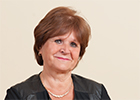
Kersti Sarapuu
Profiling Fraktsiooni mittekuuluvad Riigikogu liikmedAI Summary
Kersti Sarapuu stressed that Estonia's security depends on active youth sport, criticized the shortage of sports funding in recent years, and asked how the minister plans to raise coaches' salaries, boost the motivation of district leaders, and invest in training camps, because resources are often scarce.
Kultuuriminister Heidy Purga
AI Summary
Culture Minister Heidy Purga said that increasing the wage subsidy for coaches' labor costs is a priority, because there are few coaches due to the €1,400 salary, and government support must increase to attract more coaches who work with young people and to reduce the future burden on the social system.
Aseesimees Toomas Kivimägi
AI Summary
The deputy chairman Toomas Kivimägi asks Urve Tiidus to come onto the stage.

Urve Tiidus
Profiling Eesti Reformierakonna fraktsioonAI Summary
At the heart of the speech is the impact of artificial intelligence and the need to balance rapid technological development with culture for the younger generation, and a question is posed to the minister about how Estonia intends to use the technological possibilities of artificial intelligence to build bridges between Estonian culture and the younger generation.
Kultuuriminister Heidy Purga
AI Summary
The working groups formed by three ministries are drafting an action plan for the coming year that will bring culture and the Estonian language to young people through artificial intelligence models, address data-use and copyright issues, and ensure that young people do not fall behind in technological development.
Aseesimees Toomas Kivimägi
AI Summary
This is a short prayer during which Signe Kivi is invited to perform.

Signe Kivi
Profiling Eesti Reformierakonna fraktsioonAI Summary
Signe Kivi asks directly who decides Estonia's long-term cultural strategies — ICOMOS, UNESCO, or the ministry's agencies — and requests clarification and the forwarding of the official, corrected heritage impact assessment document, as well as information about the minister's and the ministry's future plans.
Kultuuriminister Heidy Purga
AI Summary
Tomorrow I will meet Ott Maaten, Estonia's CEO, and we will discuss the possibilities for announcing an architectural competition; if we reach an agreement, I will come on May 5 with the members of the Culture Committee to discuss the next steps and agree on an action plan, because we have ideas on how to move forward.
Aseesimees Toomas Kivimägi
AI Summary
The vice-chairman Toomas Kivimägi invites Andre Hanimägi to speak.

Andre Hanimägi
Profiling Fraktsiooni mittekuuluvad Riigikogu liikmedAI Summary
Andre Hanimägi highlighted e-sports and the gaming industry as sectors that boost Estonia's exports and reputation, and asked the Ministry of Culture what ideas there are to support their sector.
Kultuuriminister Heidy Purga
AI Summary
The gaming industry's vast potential shows that Estonia must find its role and competencies in this sector and collaborate with EIS to provide value to creatives and the cultural sector, rather than competing with the great powers on their terms.
Aseesimees Toomas Kivimägi
AI Summary
During the speech, you are asked to invite Reili Rand to speak.

Reili Rand
Profiling Sotsiaaldemokraatliku Erakonna fraktsioonAI Summary
Culture must not be a privilege, and everyone should be able to participate in culture in their home region; the state, municipalities and the community must jointly create the conditions for this. The Hiiumaa Cultural Center and the War of Independence memorial symbolize culture, and a question is put to the Minister of Culture whether smaller communities can also be at the center of cultural policy, not merely as a side note.
Aseesimees Toomas Kivimägi
AI Summary
The vice-chairman Toomas Kivimägi expresses his gratitude with the word "Thank you."

Reili Rand
Profiling Sotsiaaldemokraatliku Erakonna fraktsioonAI Summary
Reili Rand asks whether the state will come to help at these two sites.
Kultuuriminister Heidy Purga
AI Summary
According to Purga, the state has supported the Freedom Monument project and the local government has contributed, but about 300,000 euros are missing and currently there is no immediate solution visible in the budget, because the issue is on the table and funds will be found through the National Heritage Board, while for the Hiiumaa Cultural Centre's investment there is no separate investment line in the state budget and the decision depends on the scale of investments and the order of priorities.
Aseesimees Toomas Kivimägi
AI Summary
The vice-chairman Toomas Kivimägi invites Vadim Belobrovtsev to speak.

Vadim Belobrovtsev
Profiling Eesti Keskerakonna fraktsioonAI Summary
The largest share of the Ministry of Culture's sports subsidies comes from the sports federations and the Estonian Olympic Committee, as well as funding for coaches' wages and for organizing international competitions, and their funding has declined in 2022–2024, which raises questions about whether this trend will continue in the coming years.
Kultuuriminister Heidy Purga
AI Summary
The Ministry of Culture's sports subsidies total 40 million euros per year (13% of the budget), of which 13.1 million euros go to the Estonian Olympic Committee (EOC) and its affiliated federations and 7.7 million to Team Estonia, and we decided to shield Team Estonia from cuts, while with regard to all other federations we aim to preserve the current budget, and the exact solution will become clear in the state budget negotiations.
Aseesimees Toomas Kivimägi
AI Summary
At the start of the speech, Margit Sutrop is invited onto the stage.

Margit Sutrop
Profiling Eesti Reformierakonna fraktsioonAI Summary
Margit Sutrop asks how the Ministry of Culture is currently dealing with the dangers and opportunities of artificial intelligence, emphasizing that AI can digitize cultural heritage and open archives and, as a creative partner, create music, visuals, and texts, but at the same time it raises questions about copyright, may reduce the work of human artists and misinterpret cultural content or reinforce stereotypes, and asks which side—opportunities or threats— is more important right now.
Kultuuriminister Heidy Purga
AI Summary
The presentation stressed that artificial intelligence offers opportunities and can prevent threats, but in the creative sector there is a significant risk of job losses, and, for example, music companies are using AI to design album covers, with the impact on designers' work not yet clear.
Aseesimees Toomas Kivimägi
AI Summary
Peeter Ernits is invited to perform.

Peeter Ernits
Profiling Fraktsiooni mittekuuluvad Riigikogu liikmedAI Summary
Peeter Ernits criticized the Cultural Endowment's decision not to be able to secure 5,850 euros for Toomas Lepp's film about Arnold Rüütel, and noted that Lepp had for a long time led ETV and had repeatedly received funding from the Cultural Endowment, and asked whether that is normal.
Aseesimees Toomas Kivimägi
AI Summary
The vice-chairman Toomas Kivimägi simply expressed thanks in his speech.

Peeter Ernits
Profiling Fraktsiooni mittekuuluvad Riigikogu liikmedAI Summary
The speech asks for your opinion.
Kultuuriminister Heidy Purga
AI Summary
Purga said that emphasising recurring themes shows their importance, and he does not intend to blow off steam, and added that the Cultural Endowment and the Audiovisual Endowment Fund's decisions are based on dependent expertise, and he neither knows nor can comment on why one film was left out of funding, because he does not belong to the Endowment's composition.
Aseesimees Toomas Kivimägi
AI Summary
Toomas Kivimägi invited Luisa Rõivase onto the stage.

Luisa Rõivas
Profiling Fraktsiooni mittekuuluvad Riigikogu liikmedAI Summary
Luisa Rõivas asks how the state and the Ministry of Culture can maximize the socio-economic impact of large cultural and sports events and make it more beneficial for rural areas and for Estonia, and how the new development strategy foresees the continued support for investments in the Estonian film sector and joint projects.
Kultuuriminister Heidy Purga
AI Summary
Culture Minister Heidy Purga stressed the need to increase funding for sports and cultural events and to uphold the agreements to bring important events to the regions, as well as to enhance the credibility of both organizers and Film Estonia.
Aseesimees Toomas Kivimägi
AI Summary
The vice-chairman Toomas Kivimägi invited Priit Sibul to take the floor.

Priit Sibul
Profiling Isamaa fraktsioonAI Summary
Priit Sibul asked a question about funding for nationally important cultural objects and about a new list, requesting a brief overview of the current status of these objects (including Süku, the Estonian House, and Narva cooperation), the possibilities for self-financing, the priority order, and when Parliament could take up the new arrangement.
Kultuuriminister Heidy Purga
AI Summary
All cultural projects, with the exception of Narva Kreenholm, are currently in progress and advancing at different stages: the Rakvere Music House is the furthest along of them; we are also making progress with Estonia, and ERR's television complex and the Tallinn Film Town have advanced in planning and construction work, but adding a new facility depends on funds becoming available and the completion of other projects, which may take place around 2030.
Aseesimees Toomas Kivimägi
AI Summary
The vice-chairman, Toomas Kivimägi, asked Andres Metsoja to speak.
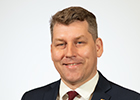
Andres Metsoja
Profiling Isamaa fraktsioonAI Summary
The presentation raises the issue of regional balance in Estonia, emphasizes the important role of the culture and sports sector in local government budgets, and poses questions to the leaders and voters about the future of local governments, while there is concern about the continuation of foundations, the decline in the number of participants in sports clubs and hobby groups, and the burden of personal contributions and participation fees remaining unchanged.
Kultuuriminister Heidy Purga
AI Summary
Culture Minister Heidy Purga said that a large part of state institutions have become foundations, mainly for museums, emphasized the expectations for the ERM's new head, and announced that the focus of the next budget negotiations will be on the salaries of ensembles (including the Dance and Song Festival, coaches) and that the autonomy of local governments and the importance of cultural workers must be respected.
Aseesimees Toomas Kivimägi
AI Summary
Riina Solman is invited to perform during the speech.

Riina Solman
Profiling Fraktsiooni mittekuuluvad Riigikogu liikmedAI Summary
Riina Solman stressed that raising coaches' salaries has been your priority, and asked how progress on this is proceeding in light of the coalition agreement and the salary changes promised for next year.
Kultuuriminister Heidy Purga
AI Summary
Culture Minister Heidy Purga emphasizes that the salaries of coaches, ensemble leaders, and cultural workers form a single, cohesive whole and must not be separated in salary negotiations, and how much is paid will become known at the beginning of September.
Aseesimees Toomas Kivimägi
AI Summary
The vice-chairman Toomas Kivimägi asks Riina Sikkut to take the floor.

Riina Sikkut
Profiling Sotsiaaldemokraatliku Erakonna fraktsioonAI Summary
Riina Sikkut emphasizes that culture is the foundation of our being and that it is created by people, but although the state's strategic aim for participation in cultural life by 2030 has been almost achieved seven years ahead of schedule, progress is driven mainly by higher-educated culture workers with a base salary of €1,600 and by freelancers or workers with unstable project funding, without social guarantees.
Aseesimees Toomas Kivimägi
AI Summary
In the speech, thanks were expressed to Riina.

Riina Sikkut
Profiling Sotsiaaldemokraatliku Erakonna fraktsioonAI Summary
Riina Sikkut notes that these people stand out internationally, and they are asked whether they deserve a performance bonus.
Kultuuriminister Heidy Purga
AI Summary
Purga emphasized that foundations offer artists flexible working opportunities and management models, and the state is their partner, and culture should be viewed more broadly as a value, not as a cost.
Aseesimees Toomas Kivimägi
AI Summary
Deputy Chairman Toomas Kivimägi asks Jüri Jaanson to speak.
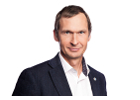
Jüri Jaanson
Profiling Eesti Reformierakonna fraktsioonAI Summary
Jüri Jaanson expressed his disappointment that the Minister of Culture must address in a single presentation both the major fields of culture and sport, and that the sports sector remains the poor relation, and he suggested that these topics be discussed separately once a year.
Kultuuriminister Heidy Purga
AI Summary
Culture Minister Heidy Purga thanks for the question and the proposal, and confirms that as a fellow party member she is available, and that the proposal to organize a conference in the Riigikogu Conference Hall or a working group in a smaller or larger format is open.
Aseesimees Toomas Kivimägi
AI Summary
This is Mihkel Lees's invitation to perform.

Mihkel Lees
Profiling Fraktsiooni mittekuuluvad Riigikogu liikmedAI Summary
It is emphasized that in Estonia fewer than half of Estonian children and young people move enough—at least 60 minutes per day—and even participants in training sessions may not achieve the necessary level of physical activity; therefore the sector's and government's efforts are to be consolidated into a single response and to show what is being done to increase physical activity and the joy of movement.
Kultuuriminister Heidy Purga
AI Summary
Culture Minister Heidy Purga pointed out that the recommended movement for adults is 2.5–5 hours per week and for children about one hour per day, and that a Movement Activity Plan is underway and that from 2025 there will be a Movement Prescription with a family doctor’s recommendation, together with a digital solution and a fitness and recreation coach; the implementation of this will last about 38 months and the budget is about 1 million euros, involving cooperation between ministries and, through role models and school programs, strengthening physical activity as a whole.
Aseesimees Toomas Kivimägi
AI Summary
The deputy chairman, Toomas Kivimägi, invited Liina Kersna to speak.

Liina Kersna
Profiling Eesti Reformierakonna fraktsioonAI Summary
Liina Kersna asks whether language policy should be designed and guided under a single ministry (the Ministry of Education and Science) or whether it would be better if the responsibility were distributed horizontally, because adult language education is organized by six ministries and the Ministry of Culture plays a major role.
Kultuuriminister Heidy Purga
AI Summary
In summary, Culture Minister Purga emphasizes that organizing Estonian-language education should be central, and leadership should be transferred to the Ministry of Education and Science, because today the work is fragmented between different ministries, although the Ministry of Culture has done significant work on integration and on the Estonian-language houses, and we should consider what the next possibilities are.
Aseesimees Toomas Kivimägi
AI Summary
Vice Chairman Toomas Kivimägi asked Madis Timpson to come and speak.
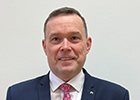
Madis Timpson
Profiling Fraktsiooni mittekuuluvad Riigikogu liikmedAI Summary
Madis Timpson thanked the chair of the meeting and the minister, emphasized the unifying impact of sport, recalled the success story of Viljandi's football hall, and posed a concrete question about whether, and how, a modern basketball hall could move forward.
Kultuuriminister Heidy Purga
AI Summary
Culture Minister Heidy Purga said that the Estonian Olympic Committee is gathering information about the needs of the sub-federations for the development of sports infrastructure, in cooperation with the Riigikogu and MPs, to create a multipurpose hall—not just a basketball hall. However, there is no money in the state budget to draw on right away, and alternative funding options are being sought.
Aseesimees Toomas Kivimägi
AI Summary
The vice-chairman Toomas Kivimägi asks Kristo Enn Vaga to come and speak.

Kristo Enn Vaga
Profiling Fraktsiooni mittekuuluvad Riigikogu liikmedAI Summary
Kristo Enn Vaga asks who should determine the priorities for the national sports infrastructure and draft them together — the Riigikogu, the Ministry of Culture, or the Estonian Olympic Committee — and what the corresponding drafting mechanism could be.
Kultuuriminister Heidy Purga
AI Summary
We, a country so small, should sit around one table and decide together with the Riigikogu, the Ministry of Culture, and the Estonian Olympic Committee's working group, identifying needs from the bottom up and trusting field experts and their regional visions — the Estonian Olympic Committee's working group is one of our most important partners.
Aseesimees Toomas Kivimägi
AI Summary
Toomas Kivimägi invites Helmen Kütt to speak.

Helmen Kütt
Profiling Sotsiaaldemokraatliku Erakonna fraktsioonAI Summary
Helmen Kütt highlighted that access to culture for people with disabilities is improving, but there are still problems, and at the same time she discussed the impact of the reform of public libraries, where state-supported jobs may disappear and municipalities will face added obligations.
Kultuuriminister Heidy Purga
AI Summary
Culture Minister Heidy Purga emphasizes accessibility as a priority in cooperation with foundations, where the first step is to map out and recognize what can be improved right away, and to understand that accessibility means much more than the presence of ramps, and there is already a dedicated person working on this, and she points to the reform of public libraries and promises to share a more detailed overview with the Culture Committee.
Aseesimees Toomas Kivimägi
AI Summary
The vice-chairman, Toomas Kivimägi, invited Tanel Tein to speak.

Tanel Tein
Profiling Fraktsiooni mittekuuluvad Riigikogu liikmedAI Summary
Tanel Tein said that culture and sport together form a strong force, but when they are brought under a single ministry, things move more slowly, and he asked whether it would be sensible to separate culture and sport and create a separate sports minister.
Kultuuriminister Heidy Purga
AI Summary
Purga said that "paisu taga" is the budget; although the new chancellor Raido Mitt is starting work at a rapid pace and the sector supports him, the most important thing at the moment is that sport and culture are together and that the budget would enable the creation of better opportunities.
Aseesimees Toomas Kivimägi
AI Summary
The vice-chairman Toomas Kivimägi invited Mart Võrklaev to speak.

Mart Võrklaev
Profiling Eesti Reformierakonna fraktsioonAI Summary
Mart Võrklaev acknowledged the tight state budget and the need to use money wisely, noting that the additional revenue from tax increases has gone to culture and defense (about 4.5 million for 2023–2024, about half a million for 2025–2026), and asked why the distribution of that money does not work or is not organized correctly.
Kultuuriminister Heidy Purga
AI Summary
In her speech, Culture Minister Heidy Purga pointed out that revenues from the gambling tax increase the Cultural Endowment, but the sector's concerns have grown; the intake of applications remains at the current level and there will be additional remuneration for creative work as well as new forms of relief for critical moments, and from 2026 the distribution of funding will be changed so that funding for buildings is equated with the portion intended for projects, creative work and people, which could open up broader support opportunities for the Cultural Endowment; the Cultural Endowment is an independent and autonomous organization, not a subsidiary of the Ministry of Culture, and decisions are made by panels of independent experts, which means the sector will have more opportunities to turn to the Cultural Endowment.
Aseesimees Toomas Kivimägi
AI Summary
This is a short prayer to Toomas Uibo.

Toomas Uibo
Profiling Eesti 200 fraktsioonAI Summary
Toomas Uibo asks the minister whether the state must pay about 1.2 million euros to the entrepreneurs for the film city project, and whether every penny is worth the fact that the entrepreneurs were removed from this project.
Kultuuriminister Heidy Purga
AI Summary
Culture Minister Heidy Purga said that the Tallinn Film Campus issue was dealt with thoroughly in the commission and a solution was found, but Margus Allikmaa, the head of the Cultural Endowment, could not enter into a contract with the Tallinn Film Wonderland members within a year, and therefore the decision remained unmade and had to be moved forward.
Aseesimees Toomas Kivimägi
AI Summary
The vice-chairman, Toomas Kivimägi, asks Tanel Kiiki to come.
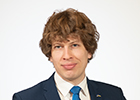
Tanel Kiik
Profiling Fraktsiooni mittekuuluvad Riigikogu liikmedAI Summary
Tanel Kiik asked the Minister of Culture whether he is worried that, as a result of the government's tax policy and rising prices, culture is becoming increasingly elitist and universal accessibility disappears.
Kultuuriminister Heidy Purga
AI Summary
Culture Minister Heidy Purga said that the presented claim is not true and the issue must certainly be monitored, and we will do this continuously through our foundations; regarding ticket prices, we should offer a variety of options for different segments of society, but at the moment I do not see major danger signs, and a fact-based summary shows that there is not much ground for concern.
Aseesimees Toomas Kivimägi
AI Summary
Toomas Kivimägi announced that today's session would be extended until the agenda is exhausted, but no later than 14:00, and in the case of the Reform Party faction's proposal the vote will take place immediately after the chamber has been summoned.
Aseesimees Toomas Kivimägi
AI Summary
53 members of the Riigikogu voted in favor of the proposal (0 against, 0 abstentions); the proposal found support; the session was extended until 14:00 as the agenda ran out; I open negotiations, and on behalf of the SD faction the birthday boy Madis Kallas wishes happiness.
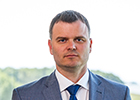
Madis Kallas
Profiling Fraktsiooni mittekuuluvad Riigikogu liikmedAI Summary
Madis Kallas said that culture and sport form the core of Estonian life and must not be left in the background, but protected as firmly as national defense, and social guarantees for culture workers, competitive salaries, and broader access to youth physical activity require permanent state support.
Aseesimees Toomas Kivimägi
AI Summary
He thanks you, and Vadim Belobrovtsev speaks on behalf of the Estonian Centre Party faction.

Vadim Belobrovtsev
Profiling Eesti Keskerakonna fraktsioonAI Summary
He asks to devote some time to me right away.
Aseesimees Toomas Kivimägi
AI Summary
The vice-chairman Toomas Kivimägi asks that eight minutes be allotted.

Vadim Belobrovtsev
Profiling Eesti Keskerakonna fraktsioonAI Summary
Vadim Belobrovtsev notes that the culture and sports sector is in a persistent crisis – low salaries, a shortage of young professionals entering the field, and constrained funding for cultural and sports facilities and infrastructure, and he calls for investments, higher salaries, and greater attention to the sustainability of these sectors for the next period and in line with Estonia's 2035 long-term development strategy.
Esimees Lauri Hussar
AI Summary
The chair thanked and asked Liina Kersna to speak here at the Riigikogu lectern on behalf of the Reform Party faction.

Liina Kersna
Profiling Eesti Reformierakonna fraktsioonAI Summary
Liina Kersna stressed that the vitality of culture and language requires constant care and the co-creation of the new and the old, and in the case of the Estonia extension, we must find an architectural solution that protects the heritage, opens the views of the Old Town, and fosters the development of opera and ballet culture — this is our national obligation.
Esimees Lauri Hussar
AI Summary
The chairman Lauri Hussar asks for two more minutes of extra time.

Liina Kersna
Profiling Eesti Reformierakonna fraktsioonAI Summary
Liina Kersna emphasizes that the vitality of the language depends on adapting to new technologies and the quality of AI's Estonian speech, for which there is a constitutional obligation to ensure that AI speaks very good Estonian, by increasing the language corpus from 4 billion to 15 billion words and by achieving a societal agreement and a culture of effort through continual self-description and self-testing.
Esimees Lauri Hussar
AI Summary
The chair extends thanks and, on behalf of the Eesti 200 faction, asks that colleague Kadri Tali speak from the Riigikogu rostrum and requests three minutes of additional time.

Kadri Tali
Profiling Fraktsiooni mittekuuluvad Riigikogu liikmedAI Summary
Kadri Tali's speech emphasizes that the culture and sports sector is an investment, not a cost, and it requires cooperation between the state and the private sector and new funding models, including attracting private capital and the design of a gambling tax, so that by 2035 Estonia will be healthier, economically stronger, and internationally competitive.
Esimees Lauri Hussar
AI Summary
On behalf of the EKRE faction, Anti Poolamets has submitted a motion to speak, and it is requested that he speak from the Riigikogu's podium.

Anti Poolamets
Profiling Eesti Konservatiivse Rahvaerakonna fraktsioonAI Summary
Anti Poolamets believes that in Estonia funding for high culture is shrinking and the preference for popular culture threatens the future of the Song Festival tradition, and he emphasizes the low salaries of choir directors and dance directors and the lack of young people as an indicator of cultural sustainability.
Esimees Lauri Hussar
AI Summary
Chairman Hussar requests three minutes of extra time.

Anti Poolamets
Profiling Eesti Konservatiivse Rahvaerakonna fraktsioonAI Summary
Anti Poolamets accuses the government of lying about Ukrainian refugees, stresses the need to protect national identity and cultural heritage, and raises questions about youth sports, culture, and defense capabilities, also mentioning gender propaganda in school materials, and calls for digitizing cultural heritage and increasing funding for Estonian films, including preserving the filming location in Rõuge.
Esimees Lauri Hussar
AI Summary
The chair, Lauri Hussar, thanks and asks, on behalf of the Isamaa faction, that his colleague Tõnis Lukas take the floor, and he is requesting three minutes of extra time.

Tõnis Lukas
Profiling Isamaa fraktsioonAI Summary
Tõnis Lukas said that the Estonian people are culturally active, but cultural sustainability requires the support of the state and the private sector, an increase in tax incentives for philanthropy, and the enactment of the Song and Dance Festival Act, so that culture is accessible to everyone and the pyramid remains intact.
Esimees Lauri Hussar
AI Summary
The chair thanks all colleagues and the minister and ends the negotiations, thanking them for an engaging and thorough discussion, and declares the first item on the agenda dealt with.